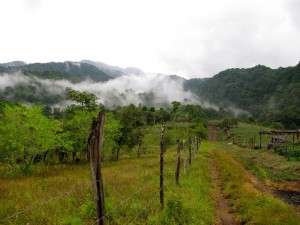 On October 9-12, Sustainable Harvest®’s 12th-annual Let’s Talk Coffee® conference outside Panama City will bring together more than 500 stakeholders throughout the specialty-coffee supply chain, including roasters, producers, and financiers. Leading up to the event, we’re profiling some of the people and elements that make Let’s Talk Coffee® an unforgettable, one-of-a-kind event.
On October 9-12, Sustainable Harvest®’s 12th-annual Let’s Talk Coffee® conference outside Panama City will bring together more than 500 stakeholders throughout the specialty-coffee supply chain, including roasters, producers, and financiers. Leading up to the event, we’re profiling some of the people and elements that make Let’s Talk Coffee® an unforgettable, one-of-a-kind event.
The specialty coffee of Panama is world-renowned, not for volume of production, but for outstanding quality. The Specialty Coffee Association of Panama (SCAP) has helped foster a culture of quality among its member producers, who cultivate many coffee varieties—including the coveted Geisha—with extreme care. Participants at this year’s Let’s Talk Coffee® will have the opportunity on the event’s last day to travel to Boquete—located in Panama’s western coffee-growing region—to tour the area’s coffee farms with the finca owners (space is limited to 25 participants per farm).
The farms we will visit:
- Hacienda La Esmeralda
- Finca La Mula
- Finca Rio Cristal
- Finca Sofia
- Finca Callejon Seco
Here is more information one of the excellent farms trips featured at Let's Talk Coffee®:
Finca La Mula and Finca Sofia
 Internationally renowned coffee expert Willem Boot—who will speak at Let’s Talk Coffee® 2014—has established two coffee farms in western Panama: Finca La Mula in 2006 and Finca Sofia in 2010. Partnering with Graciano Cruz and Kelly Hartmann, whose families have grown coffee in the region for generations, Boot hired indigenous Ngöbe-Buglé workers to plant more than 35,000 Geisha trees on these two farms.
Internationally renowned coffee expert Willem Boot—who will speak at Let’s Talk Coffee® 2014—has established two coffee farms in western Panama: Finca La Mula in 2006 and Finca Sofia in 2010. Partnering with Graciano Cruz and Kelly Hartmann, whose families have grown coffee in the region for generations, Boot hired indigenous Ngöbe-Buglé workers to plant more than 35,000 Geisha trees on these two farms.
Finca La Mula sits high on the southern slopes of Baru Volcano (between 5,500 and 6,100 feet above sea level), where constant mists and mineral-rich soils promote Geisha’s slow growth and outstanding complexity. Finca Sofia, on the other side of Baru, occupies more than 45 acres of equally rich volcanic soil at an even higher elevation (6,400 to 7,200 feet above sea level). A protective ridge insulates the farm from strong Atlantic winds, creating a microclimate in which coffee thrives. Bordering Amistad National Park, Finca Sofia strikes a balance between quality and ecological sensitivity, serving as a model farm for cultivating coffee with the best environmental practices.



.png)
